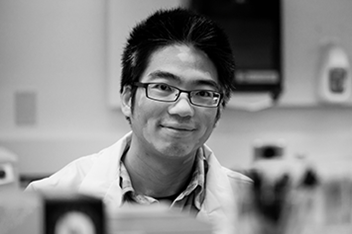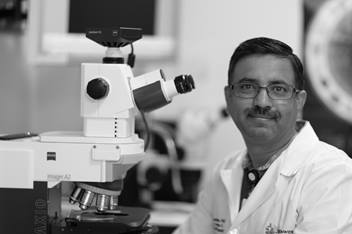Bedrosian Lab
The brain is a genetic mosaic. Individual neurons harbor unique genotypes distinct from one another and distinct from the individual’s inherited genetic code. This phenomenon is attributed to mutations that arise in neural progenitors during prenatal development, a time of rapid proliferation that peaks at more than 100,000 cell divisions per minute. The result is a mosaic brain where cells are defined by a signature of single nucleotide variants, copy number variation and retrotransposon insertions. Each somatic variant has the potential to influence the function of its host cell and the wider neuronal network. To some extent, brain mosaicism likely contributes to normal neuronal diversity and complexity. But brain mosaicism has also been linked to disorders ranging from structural brain abnormalities to epilepsy and psychiatric disease.
The Bedrosian Lab is interested in genetic mechanisms that shape the developing brain and contribute to neurodevelopmental disease. Its team uses a translational approach that combines characterization of patient brain specimens with functional modeling in patient-derived cell lines and transgenic mice. The Bedrosian Lab’s work addresses fundamental questions related to how genetic mosaicism affects neurodevelopment during health and disease, such as how somatic mutations arise and populate the brain, how they affect individual cells and the larger network/structure, how a small number of affected cells have a widespread effect and how somatic mutations contribute to complex phenotypes.
Areas of Research
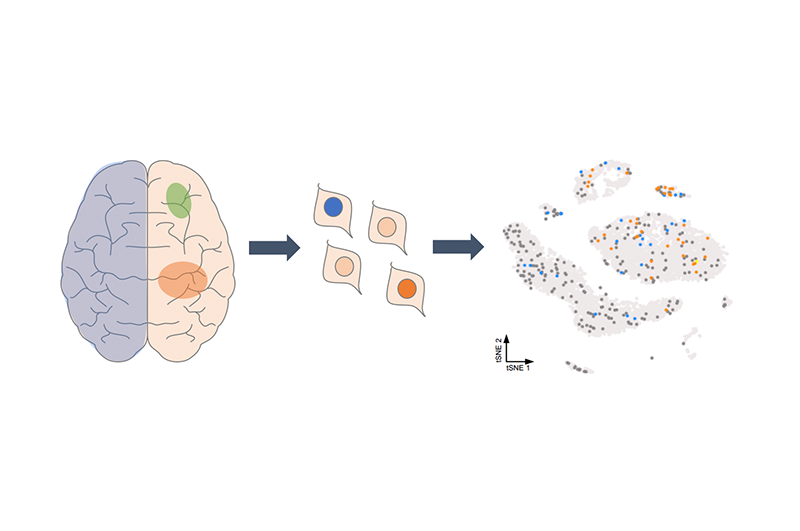
The Bedrosian Lab uses single-cell RNA-sequencing of surgically resected patient brain specimens to identify affected cell lineages in pediatric patients with brain malformations caused by somatic mutations. This analysis allows researchers to reconstruct the developmental history of patients’ somatic variation and to learn how their diseases arose. Identifying patterns in the types of affected cells will eventually help researchers understand what kinds of cells to target with therapeutics.
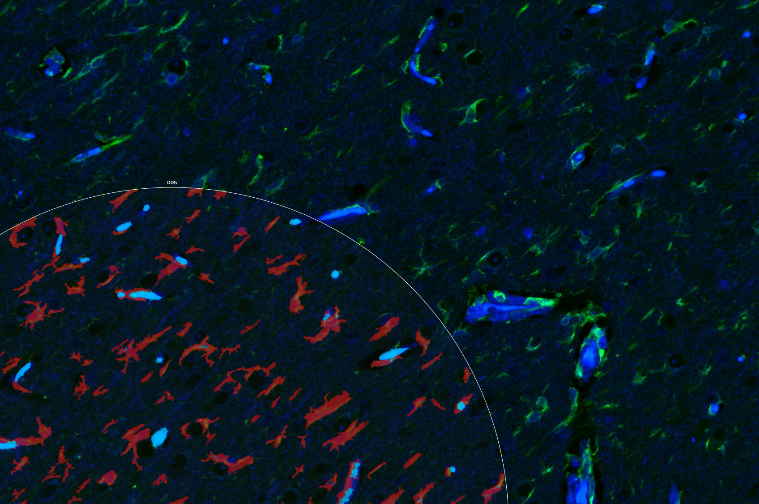
Some pediatric brain tumors coincide with epilepsy to a high degree. The Bedrosian Lab uses spatial proteomic analysis of patient tumor tissue to study how somatic mutations affect specific cell types in different ways. This research helps identify why some tumors often contain epileptogenic cells.
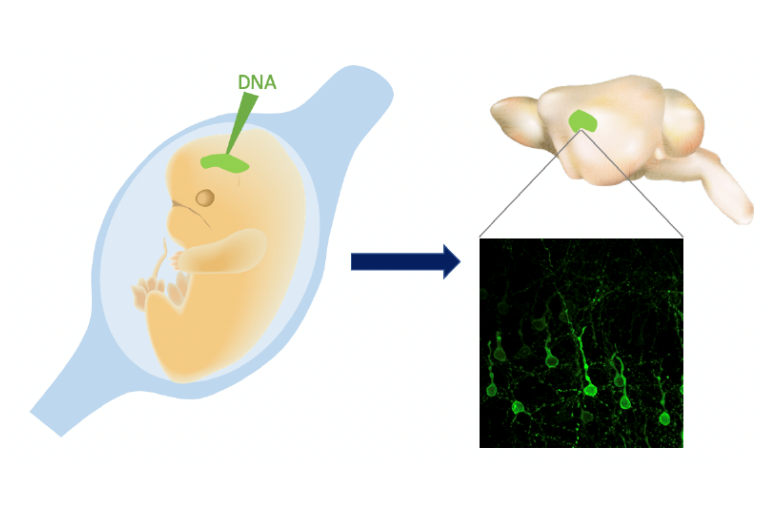
To study the function of particular somatic variants in brain development, the Bedrosian Lab induce brain mosaicism by genetic manipulation of various model systems, including human cerebral organoids and developing mice in utero. The team uses a fluorescent tag to mark mosaic cells and observes how the somatic mutations disrupt the maturation of those cells. By directly testing the function of somatic variants in brain development, researchers can identify molecular targets for future therapies and test potential treatments.
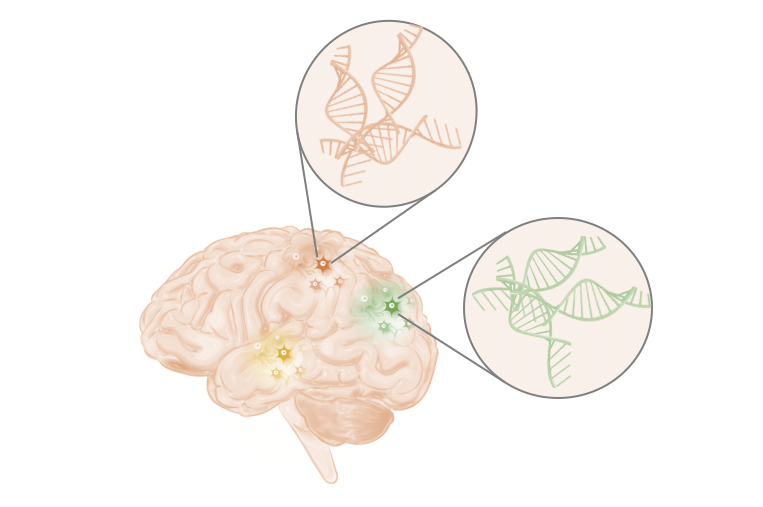
Nearly half of the human genome is derived from transposable elements (TEs) — mobile genetic elements that replicate and insert copies of themselves throughout the genome. TEs generate brain mosaicism that has been associated with a number of neurological diseases. We use genetic techniques to investigate how TEs contribute to brain development in various contexts.
Meet Our Team
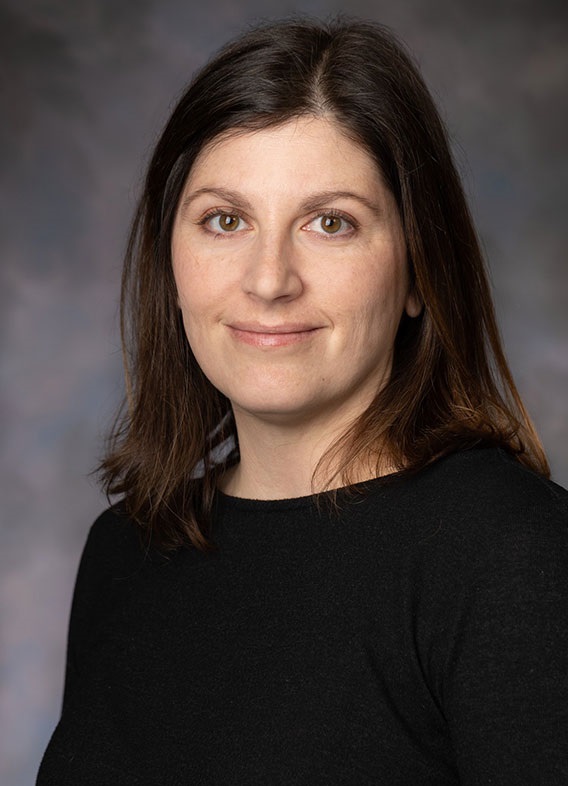
Tracy Bedrosian, PhD
Principal Investigator / Associate Professor
Tracy Bedrosian, PhD, is a principal investigator at Nationwide Children’s Hospital and an assistant professor of Pediatrics at The Ohio State University College of Medicine. Dr. Bedrosian has more than 15 years of experience in neuroscience research with much of the past decade focused on brain mosaicism. She received K01 Career Development funding from the National Human Genome Research Institute (NHGRI) of the National Institutes of Health (NIH) to develop genomic techniques for studying somatic mosaicism.
Previously, Dr. Bedrosian was an NIH-funded Ruth L. Kirschstein National Research Service Award (NRSA) and Brain & Behavior Research Foundation NARSAD Young Investigator at the Salk Institute, where she worked with Fred "Rusty" Gage, PhD, to study the role of mobile genetic elements in brain mosaicism and neurodevelopment.
Prior to her postdoctoral fellowship, Dr. Bedrosian was an Department of Defense National Defense Science and Engineering Graduate (NDSEG) Fellow with Randy Nelson, PhD, at The Ohio State University and a student researcher working with Huda Akil, PhD, at the University of Michigan, where she worked with rodent models of neuropsychiatric and neurodevelopmental disease.
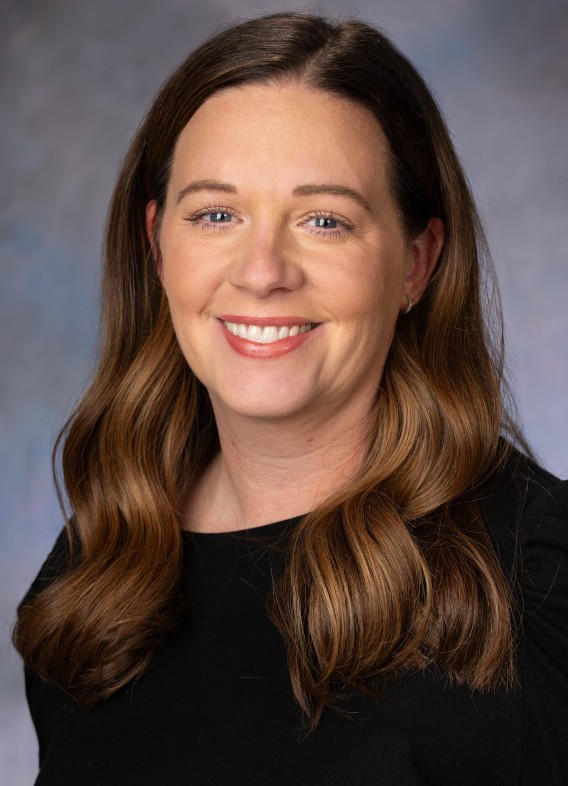
Lauren Mashburn-Warren, PhD
Lab Manager / Senior Research Scientist
Lauren.Warren@NationwideChildrens.org
Lauren Mashburn-Warren, PhD, is a senior research scientist and lab manager of the Bedrosian Lab. Lauren is a microbiologist by training but became interested in neuroscience when she developed a project investigating the effects of the periodontal pathogen Porphyromonas gingivalis on neurodevelopment in utero. In the Bedrosian Lab, Lauren is interested in using patient data and mouse models to study somatic mosaicism and how they relate to epilepsy. Previously, she was a Life Science Research Foundation postdoctoral fellow sponsored by the Howard Hughes Medical Institute investigating quorum sensing in Streptococcal spp. in the lab of Michael Federle at The University of Illinois at Chicago. Her graduate studies explored trafficking mechanisms of Pseudomonas aeruginosa quorum sensing molecules via outer membrane vesicles with Marvin Whiteley at the University of Texas at Austin.
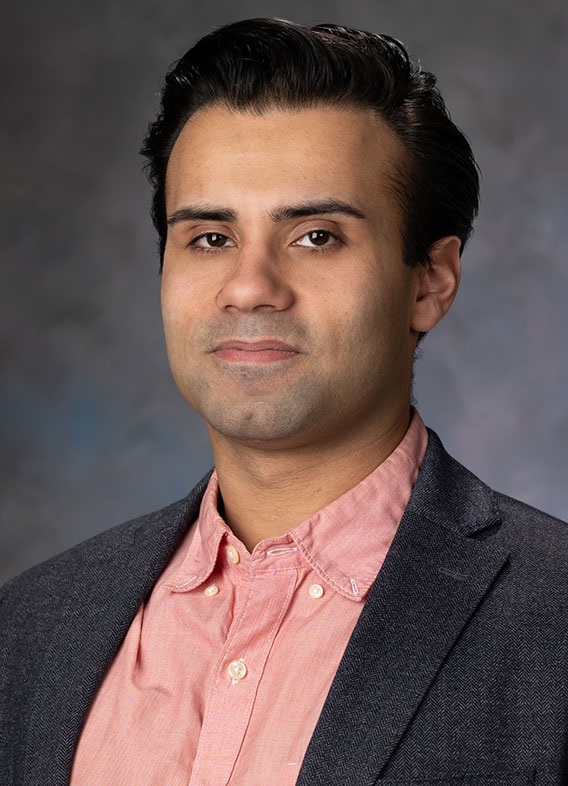
Sahib Sran
Senior Research Associate
Sahib.Sran@NationwideChildrens.org
Sahib works on a variety of projects to characterize the genetic origins and mechanisms of neurodevelopmental disorders. He is interested in understanding the contributions of genetic mutations to the development of pediatric brain tumors linked to epilepsy and utilizes both patient data and animal models to carry out these and other investigative aims. Sahib obtained his bachelor’s degree in Physiology and Neurobiology from the University of Connecticut and his master's degree in Physiology from the University of Cincinnati. He hopes to attend medical school in the upcoming years to blend translational research into his role as a physician.
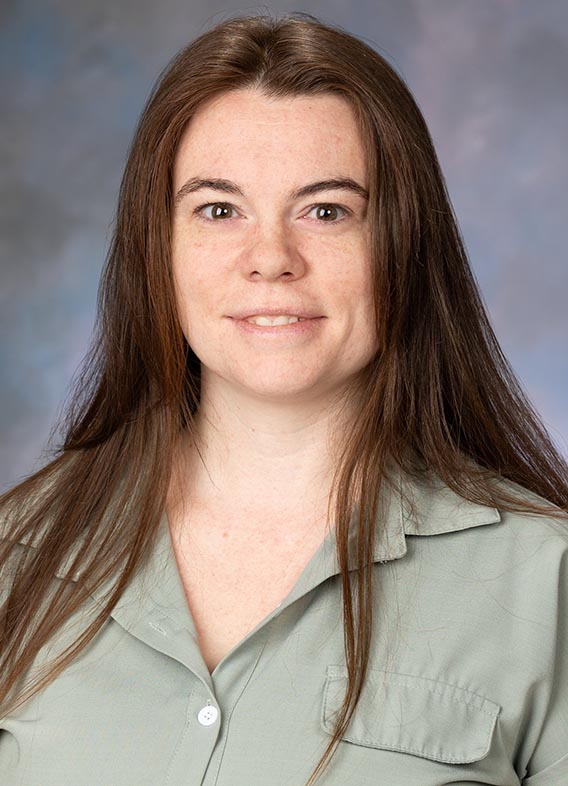
Amanda Ringland
Senior Research Associate
Amanda.Ringland@NationwideChildrens.org
Amanda is a senior research associate in the Bedrosian Lab who is interested in genetic mechanisms of epilepsy utilizing rodent models. Amanda received her bachelor’s and master’s degree in Neuroscience from Tulane University. She hopes to attend graduate school to earn a doctorate in Neuroscience.

Samantha Dow, PhD
Postdoctoral Researcher
Samantha.Dow@NationwideChildrens.org
Samantha Dow, PhD, is a postdoctoral researcher in the Bedrosian Lab. Her research interests include understanding the molecular and cellular mechanisms of epilepsy, as well as other neurodevelopmental disorders, using an array of neuroscience and genomics techniques. Prior to joining the Bedrosian Lab, Samantha completed her graduate work and received a Ruth L. Kirschstein National Research Service Award predoctoral fellowship exploring the role of brain cellular senescence in driving hypertension in the lab of Colin Young, PhD, at the George Washington University. She received her bachelor’s degree in neuroscience from the University of Rochester.
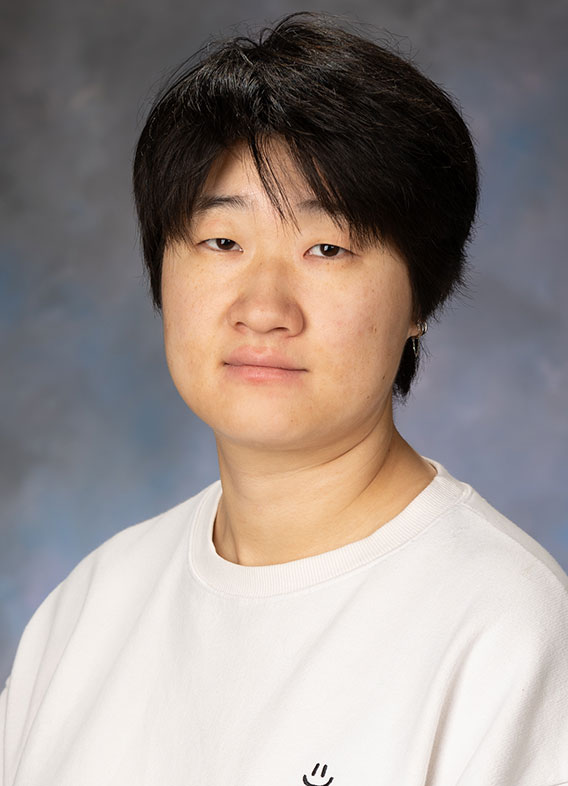
June Yoon, PhD
Postdoctoral Fellow
June.Yoon@NationwideChildrens.org
June Yoon, PhD, is investigating genetic mechanisms of developmental brain malformations and epilepsy. Dr. Yoon earned her doctorate from The Ohio State University in Molecular, Cellular and Developmental Biology and her bachelor’s degree from Chung-Ang University.
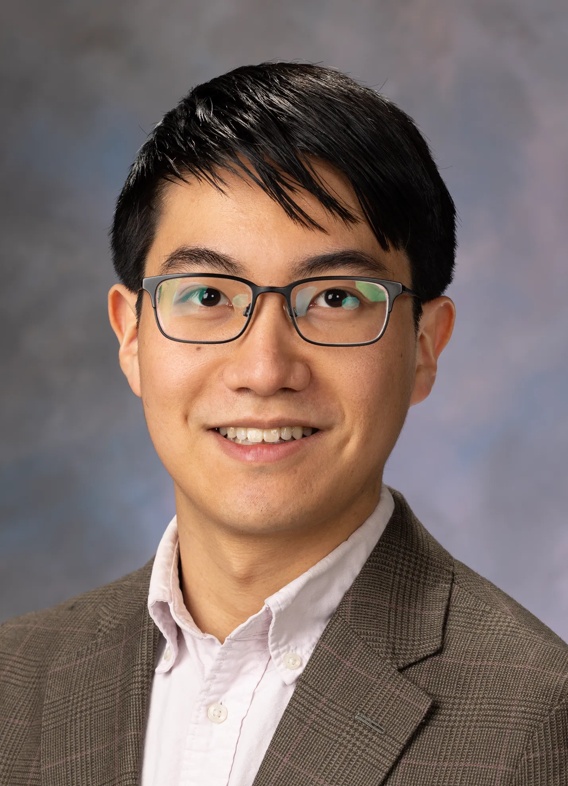
Noriyuki Shinagawa
Graduate Research Student
Noriyuki.Shinagawa@NationwideChildrens.org
Noriyuki is a MD/PhD student at The Ohio State University and a graduate student in the Bedrosian Lab. Noriyuki is interested in exploring the mechanisms by which somatic variants lead to epilepsy. He received his bachelor’s degree in biomedical engineering from the Georgia Institute of Technology. His career goal is to become a pediatric geneticist physician-scientist specializing in treating and researching neurodevelopment disorders.

Jay Anderson
Undergraduate Research Assistant
James.Anderson@NationwideChildrens.org
Jay is an undergraduate research assistant in the Bedrosian Lab and is pursuing an honors thesis studying cellular mechanisms in neural progenitor cells that lead to malformations of cortical development and epilepsy. He is studying Neuroscience at The Ohio State University and hopes to attend an MSTP program upon graduation.

Ashton Holub, PhD
Post-doctoral Scientist
Ashton Holub, PhD, is a postdoctoral researcher in the Bedrosian lab investigating somatic mosaicism within the brain and the molecular mechanisms of epileptogenesis. He is particularly interested in the effects somatic mutations have on individual neuronal cell types. He is also a member of the Biomedical Interpretation & Training Team led by Dan Koboldt, analyzing and interpreting genomic data from multiple research protocols. Dr. Holub earned his bachelor’s degree in Biology from James Madison University and his doctorate in Molecular Genetics from The Ohio State University.
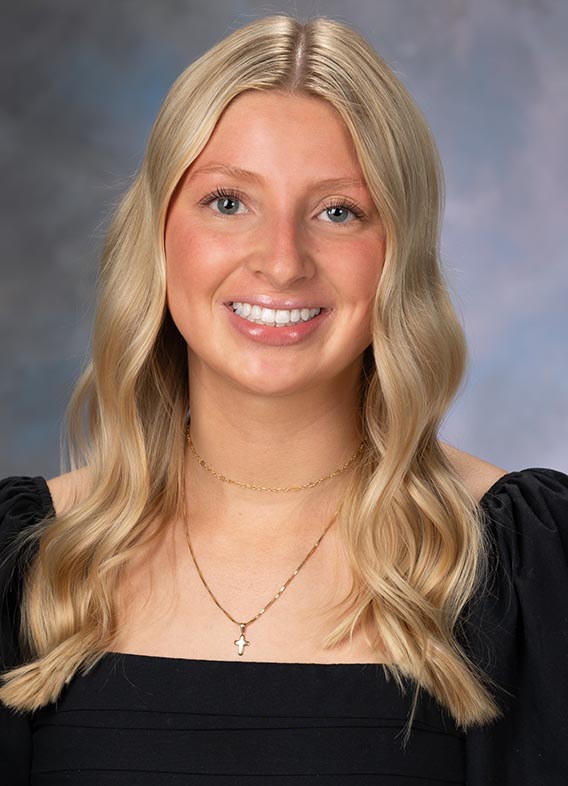
Jillian Henry
Undergraduate Research Student
Jillian.Henry@NationwideChildrens.org
Jillian is an undergraduate research student in the Bedrosian Lab, where she focuses on the genetic aspects of epilepsy using rodent models. She is currently pursuing a neuroscience degree at The Ohio State University and hopes to attend medical school in the future.


